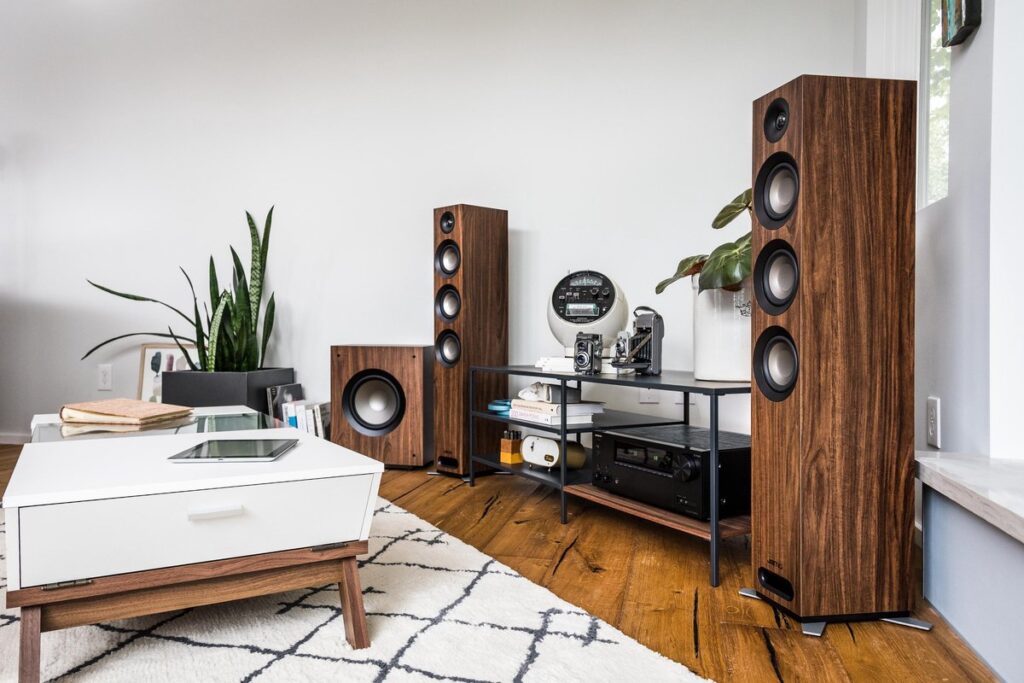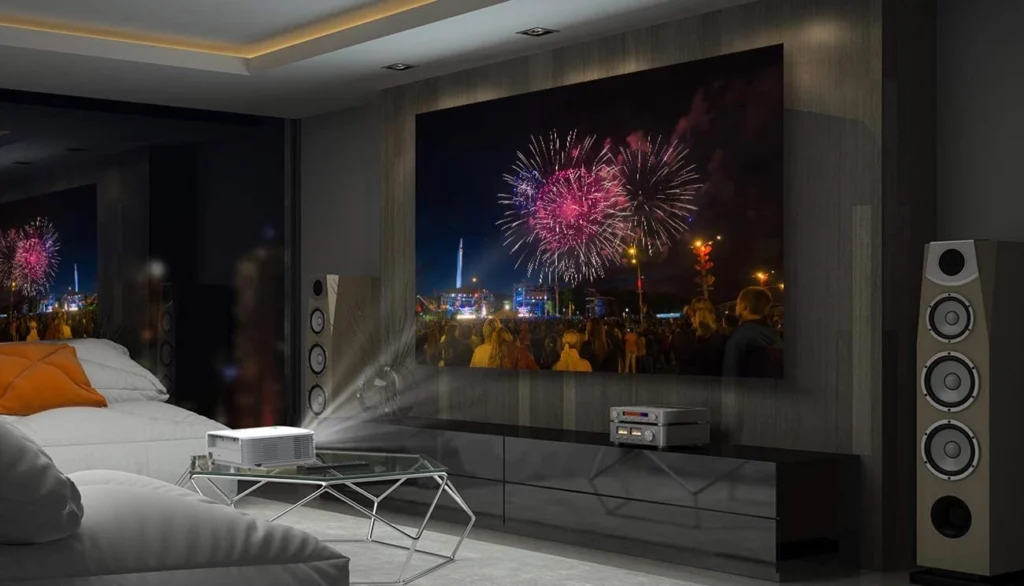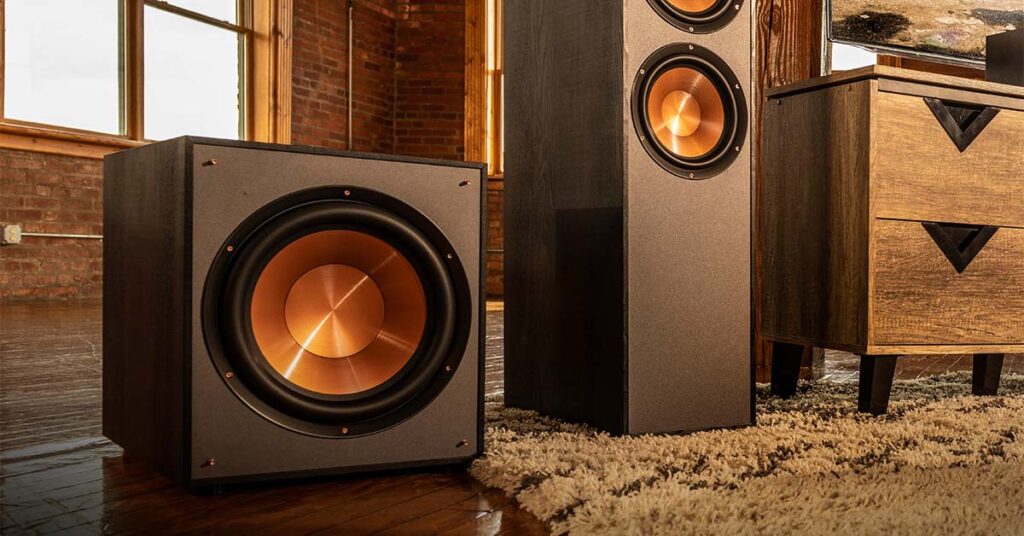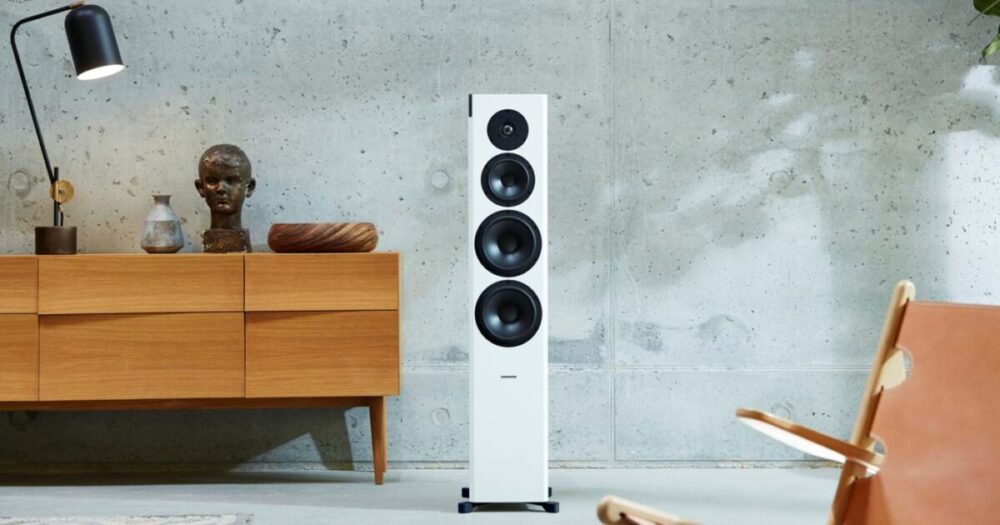Are you looking for the perfect speaker setup for producing music? If so, you’ve come to the right place. With the right speakers, you’ll be able to create professional-sounding recordings from the comfort of your own home.
In this blog post, we’ll discuss everything from what types of speakers are best for music production to how to set them up correctly.
So, let’s get started and take a look at what it takes to create a crystal-clear sound for your musical creations!
Factors to Consider When Choosing Speakers

Source: bol.com
Selecting the proper ones for music production is one of the most important decisions you will make. Speakers, also known as “parlantes” in Spanish, have a major impact on sound quality and will help in achieving desired results from your music production. When choosing one it is important to note a variety of factors such as size, space, type, power handling, frequency response, and amplifier power requirements.
Size
Their size should correspond with desired listening space and also the acoustics of the room. The shape and size of the enclosure will also influence sound quality.
Space
Smaller size ones are obviously better suited for spaces with limited room but may not provide the desired sound output (bass) you desire. Oversized speakers also known as in smaller rooms could cause over-audio distortion so it’s important to find a balance between desired sound levels and available space/room acoustics/type of listening environment.
Type
Different speaker types perform differently under various conditions so it’s best to match the type based on its intended application. There are generally two broad categories regarding the types; active (powered) or passive (unpowered). Active requires an external power source while passive might need amplification from an amplifier or other input device like a computer sound card to enhance its performance
Power Handling
Power handling is another aspect that comes into play when selecting appropriate speakers for your performance needs or studio setup; higher wattage does not necessarily translate into louder or better-sounding performances as that primarily depends on electronics used with them as well as other aspects such as materials used in construction/enclosure type etc.
Frequency Response
Frequency response is another factor that should be taken into account when selecting speakers for a home theater system or studio recording setup; ideally one should select a pair that can accurately render low bass frequencies along with mid tones while providing crisp highs without any distortion.
Amplifier Power Requirements
It’s important to match amplifier power requirements with those needed to achieve your desired performance level; different amplifiers will provide varying amounts of watts which could ultimately affect playback quality.
Home Theater Speakers

Source: rollingstone.com
They are often used in music production because they offer clear sound and increased control over volume. They can be placed in different positions around the room so that the sound is focused and directed more accurately.
This type of speaker system uses multiple drivers to create a fuller, more detailed sound than what could be achieved with just one or two separate speakers. Home theater speakers have higher levels of power, meaning you can produce loud, quality sounds without distortion and other audio flaws.
Additionally, they usually come with bass management systems which allow you to adjust the level of bass and mid/high frequency sounds for better sonic plasticity within your productions. Finally, they often come with audio calibration systems which ensure that you’re receiving an accurate representation of your music production.
Bluetooth Speakers

Source: gizmodo.com.au
They are perfect for listening to your music production from the comfort of your own home. They provide a clearer and more accurate sound than traditional speakers, making them great for mixing and mastering audio. Moreover, you can easily move Bluetooth speakers around your studio so you can change positions and listen to your music from different areas for a better sound experience. Additionally, most of them come with auxiliary input, so it is possible to connect an external source such as an MP3 player or tablet.
Bluetooth speakers come in a variety of sizes and shapes to fit any budget and they are easy to set up and use. If you need more powerful sound, many Bluetooth models offer multi-room listening. This means that you can connect multiple of them to the same audio source within the same room or even across multiple rooms in the house. Some models even have voice control options so that you can control the speaker using voice commands. Whatever type of speaker system you choose, make sure it has all the necessary features that will allow you to get the best out of your music production.
Subwoofers

Source: crutchfield.com
Subwoofers are essential when producing music as they pick up even the lowest frequencies that are often difficult to detect. Subwoofers can be used to help unearth any hidden ‘sub’ frequencies in your mix, allowing you to adjust them and reshape the sound of your track.
When selecting a subwoofer for music production, it is important to get one with a good frequency range. Generally speaking, a frequency range between 20Hz and 200Hz is suitable for most genres of music production. You should also ensure that the bass response is tight and well-defined, with minimal distortion. However, there are some exceptions – some genres such as hip-hop require more bass response with higher distortion levels so it can be good to experiment!
It is also worth considering the build quality of your subwoofer when making your decision. If you opt for a cheaper model, the sound produced can sometimes become muddy or distorted at higher levels, leading to an overall lackluster mix and potential headaches down the line during mastering! Choosing a more expensive model will often provide a clearer and more accurate representation of low-frequency sounds sooner in the production process – meaning less time spent mixing while achieving better results quicker!
Conclusion
In conclusion, music production requires a balanced approach to achieve the best sound quality. It is important to find a set of speakers that match your expectations for sound quality, as well as fit within your budget. Additionally, it is important to remember that each room presents its own unique acoustical challenges, so experimentation and testing may be required in order to find the ideal combination for optimal performance. As noted earlier, there are many excellent options on the market from trusted developers and manufacturers that have been designed specifically for music production.





















